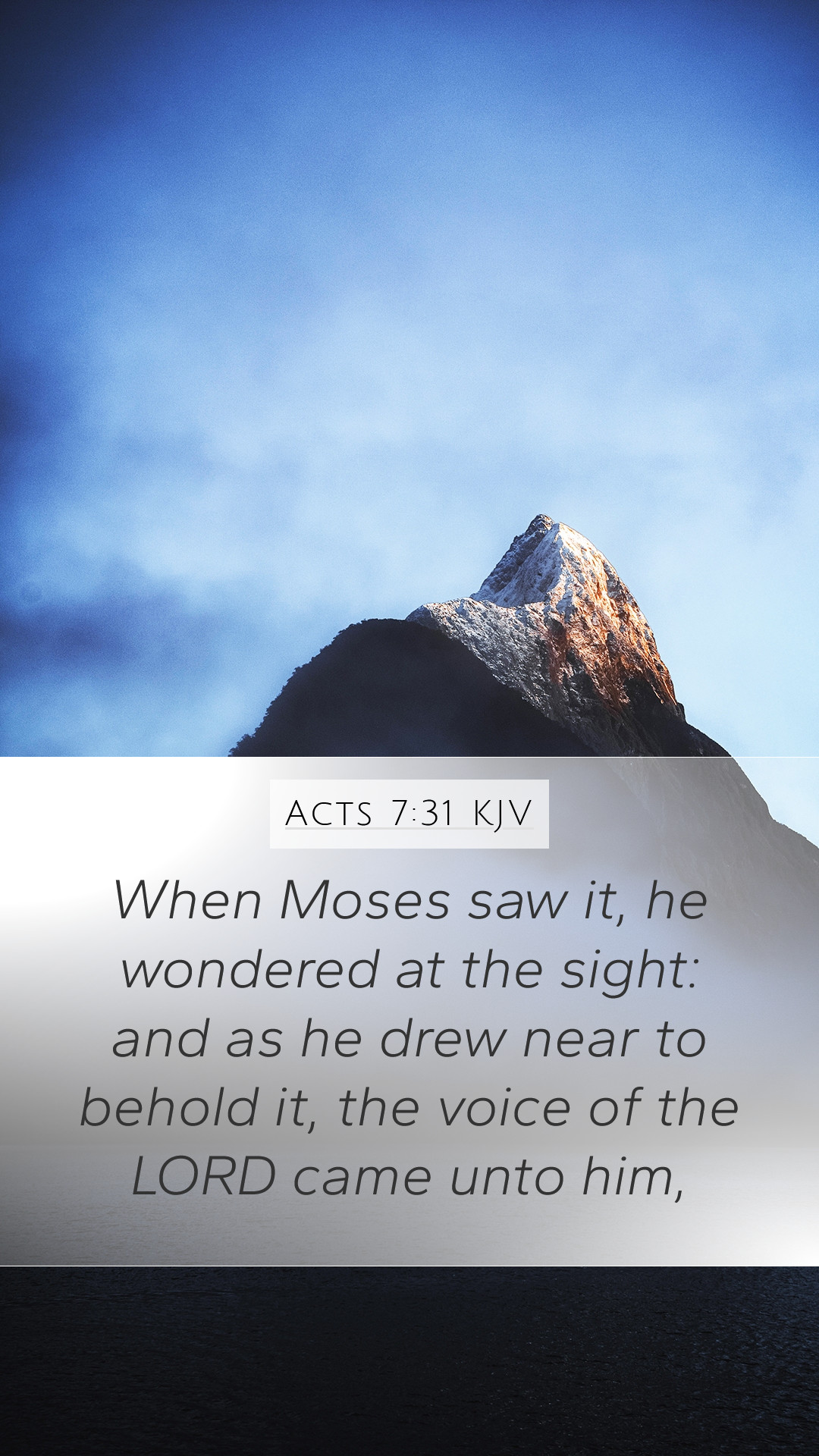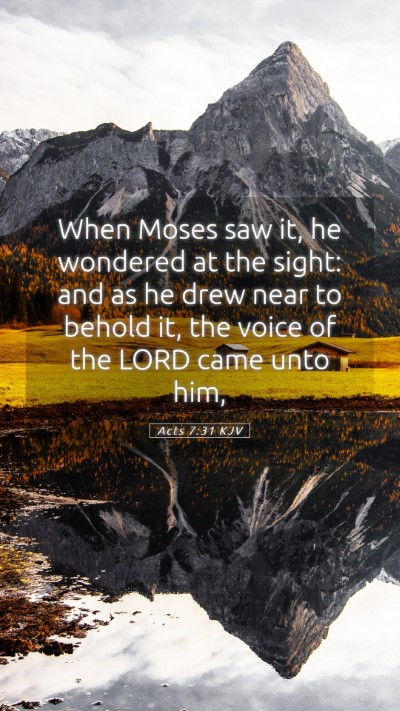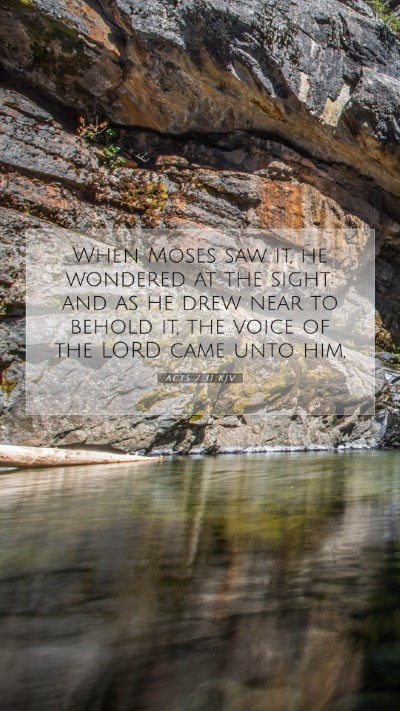Acts 7:31 Explained: A Comprehensive Biblical Commentary
Acts 7:31 (KJV): "When Moses saw it, he wondered at the sight: and as he drew near to behold it, the voice of the Lord came unto him."
Understanding the Context
The context of Acts 7 involves Stephen's speech before the Sanhedrin, where he recounts the history of Israel and highlights the rejection of God's messengers. This particular verse references the moment when Moses encountered the burning bush on Mount Horeb, which symbolizes God's divine presence.
Bible Verse Meanings
- Divine Wonder: Moses’ reaction to the burning bush signifies the awe that accompanies divine revelations. This is a common theme in Scripture where encounters with the divine invoke wonder and reverence.
- God's Call: The voice of the Lord signifies God’s direct communication, which often brings with it a sense of purpose and mission. This moment marks the beginning of Moses' journey as a leader for God's people.
Bible Verse Interpretations
Matthew Henry notes that Moses’ hesitation to approach the burning bush reflects human frailty and the natural instinct to retreat in the presence of holiness. Henry emphasizes that it is God who invites Moses closer.
Albert Barnes suggests that the wonder experienced by Moses was not merely curiosity, but a profound recognition of God’s omnipotence. Barnes highlights that this episode illustrates God’s initiative in selecting a leader for Israel’s deliverance.
Adam Clarke provides insights into the significance of God's call to Moses. He points out that this divine encounter sets the stage for the deliverance of the Israelites from Egypt, emphasizing God's plans and purposes being enacted through individuals.
Biblical Exegesis
The biblical exegesis of Acts 7:31 reveals deeper theological truths. The encounter with the burning bush encapsulates themes of revelation, obedience, and divine purpose.
- Revelation: God often reveals Himself in dramatic fashions. The burning bush is a physical representation of God’s presence and His ability to transcend human understanding.
- Obedience: Moses’ initial fear and wonder are natural reactions when faced with God’s holiness and majesty. This moment serves as a precursor to Moses’ eventual obedience and leadership.
- Divine Purpose: The calling of Moses foreshadows the eventual liberation of the Israelites, highlighting God's commitment to His covenant people.
Applying Bible Verses to Daily Life
Acts 7:31 prompts believers to consider how they respond to divine calling in their lives. It encourages self-reflection regarding how one perceives God’s presence and how one acts when presented with opportunities to serve.
In today's context, this verse urges individuals to approach moments of divine revelation with both reverent fear and eager willingness to follow God’s lead. It reminds the faithful that encounters with God often come with a call to action.
Conclusion
Acts 7:31 is a profound verse, rich in meaning and implications for both historical understanding and personal application. By exploring its insights through multiple commentaries, we can deepen our Bible verse understanding and enhance our Bible study experiences.
Cross References
- Exodus 3:1-10: God calls Moses at the burning bush.
- Acts 7:30: Stephen recounts Moses' early life and God's calling.
- Exodus 4:10-16: Moses’ objections and God’s reassurance.
- Hebrews 11:24-27: By faith, Moses chose to identify with God's people.
- Matthew 17:5: God’s voice affirming Jesus at the Transfiguration.


